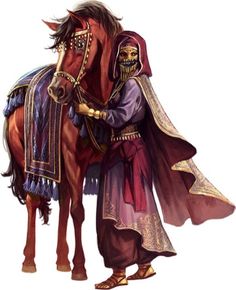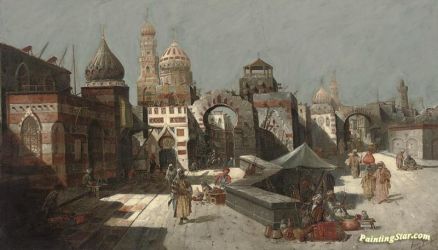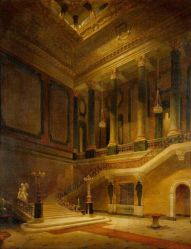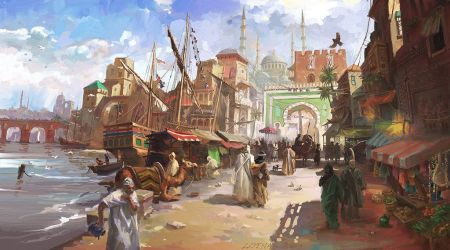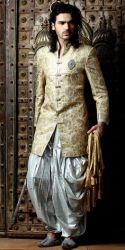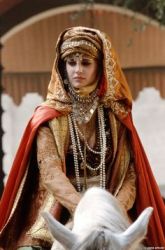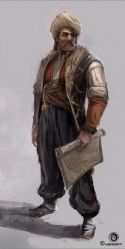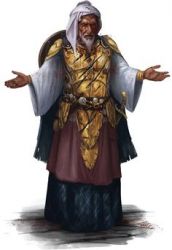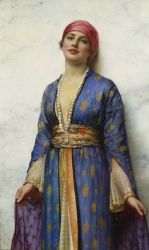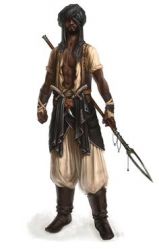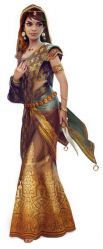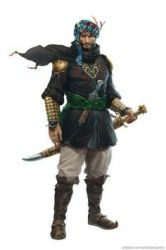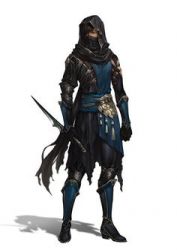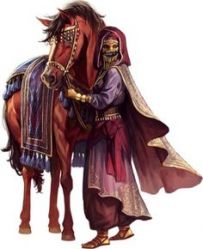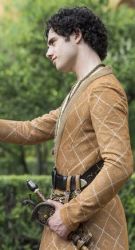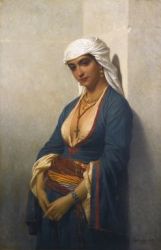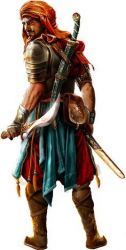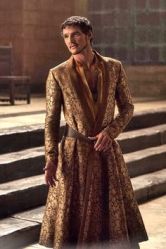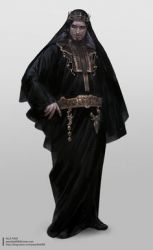Changes: Sim Layout, City-States, RPCSS Factions, and Storyline. Read More
Arjat
From The Citadel
A blend of the medieval Middle East, the Arabian Nights, Dorne, and Zephrin of Comraich.
"Zuben is glorious and Arjat her crowning jewel", they would cry upon nearing the golden walls of the city. Certainly, the Genobi desert is magnificent with its deep dunes and red gold mountains, and none would disagree, except perhaps the Bantu, that Arjat is the most beautiful of the southern cities. Arjat is an array of color; hanging rugs and tapestries to brightly painted doorways, soft pastel adobe, gleaming domes, and vibrant florals.
The Zuberi people are primarily goat herders who bring their herds to Arjat to sell. In turn, they buy grain, wine, flax, and vegetables brought in from the continually contested flood plains, as well as dates and other fruit from the high coastal farms. Only the city-dwellers, the Jabbah, have any taste for fish which is a staple of their diet.
- Personality
Zuberi are welcoming and hospitable to Guests, and easily offended when in the company of rudeness, they are a people highly focused on their hobbies and occupations, prefer small-talk before getting down to business as personal relationships are important to the business. Polite society calls for overt courtesy, the avoidance of giving insult, and long social events. Zuberi events are almost always arranged to provide spaces to lounge.
Privately, they are intense and silent, as if everyone was an introvert by nature, needing to recharge themselves for the next social gathering. In the rooms behind the Dewaniah, the Zephrin people create an oasis of reflection and solitude, where they may enjoy the company of their families, their studies, and their businesses.
The Zuberi arrange themselves along tribal lines much like the Bantu people of Shakanda. Family and tribal ties drive both business and politics. They are ruled by a priest-king and a council of tribal advisors. Each new ruler of the Zuberi people is considered to be divinely appointed. Those born in the desert are called Shaula, and those born within the city are called Jabbah.
Where they not in a continual battle for limited resources the Bantu people would be their natural ally as they share many cultural similarities. They consider the Dyrlings and Euresu habit to stick to the letter of the law to be untrustworthy and therefore traditionally ally with the Alfarians to the north.
- Appearence
The Zuberi are dark Skinned, from caramel to espresso with black hair unless it is dyed henna red. They typically have bright green or gold eyes. They are average height for humans. They usually wear their hair and beards oiled, and the women wear both henna (temporary tattoos), and harquus (permanent black tattoos in specific patterns).
Compared to their neighbors, the Zuberi are both more modest in coverage and more outrageous in their choice of clothing, with unusual color choices and pattern combinations. They favor a fantasy influenced style from Turkey and the Middle East, and tales of the Arabian Nights, and Sinbad The Mariner. Indian sarees, jewelry, and gold-threaded trim are popular. Men favor long tunics of silk and brocade, usually with high necks, or wrapped tunics. Men and well as women tend towards a flamboyant style with a lot of draped cloth in the form of sashes, shawls, scarves, and head wraps.
- Traditions
Acrab is known as the Protector of the Unfortunate, the Desperate and the Enslaved. His prophet is known as Mises who led the Zuberi people to their home here in Arjat. There are three sets of documents in the religion of Acrab. The first is the Ancient Book of Tombs, a partially preserved set of papyrus scrolls taken during the exodus. This set of scrolls contains the entirety of the commandments from which the primary commandments were taken, as well as prayers and invocations to older gods, many of which become adapted for Acrab. The second book is the Book of the Prophets and contains all of the writing of the various priest-kings since Mises. The third book is the daily prayer book known as the Book of the Heavenly Horse. Prayers are said twice a day, at dawn and sunset.
Burial traditions hold that a person is to be embalmed and then entombed, not buried or burned. The spirit of the person travels deep into the desert to stand before Acrab to be judged. Depending on the judgment, the person will be re-incarnated according to the value of their life and, in some cases, returned to their body and re-animated.
- Expanded Lore
- Further reading and links for the culture obsessed.
